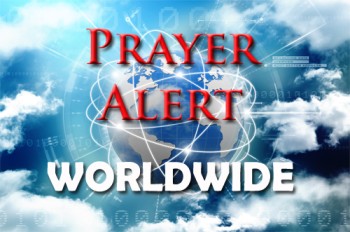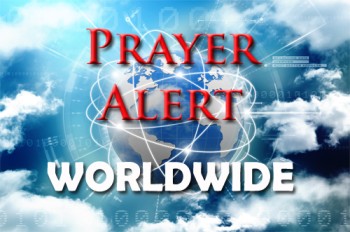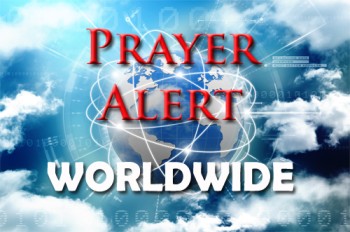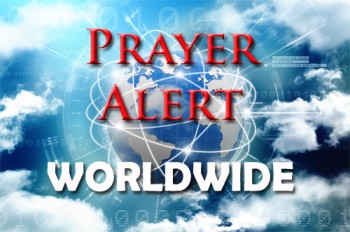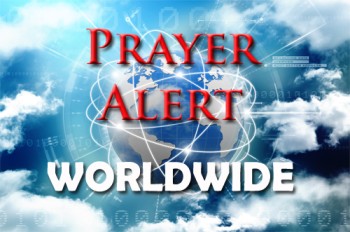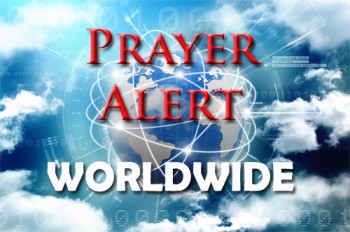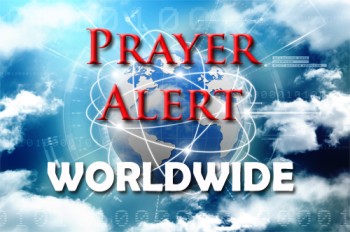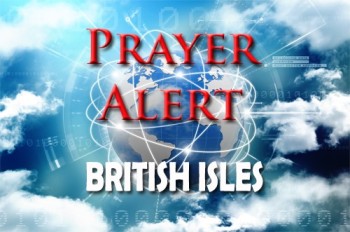Displaying items by tag: Hamas
Gaza: infant dies of hypothermia in terrible weather
A humanitarian tragedy is unfolding in Gaza as a Palestinian infant has died from hypothermia amid severe winter conditions and ongoing restrictions on aid. Local health officials reported that two-week-old Mohammed Khalil Abu al-Khair succumbed to extreme cold after families were left without adequate shelter, heating, clothing, or fuel. Israel’s prolonged military campaign has destroyed much of Gaza’s infrastructure, forcing hundreds of thousands to live in tents or damaged buildings unable to withstand storms and freezing temperatures. Recent severe weather has flooded shelters, collapsed structures, and caused further deaths. Humanitarian agencies warn that Israeli restrictions on aid deliveries, including limits placed on UNRWA, are preventing lifesaving supplies from reaching civilians at scale. The child’s death underscores how the denial of basic necessities has turned winter itself into a lethal threat, particularly for children and other vulnerable civilians.
Jesus appeared to Hamas member’s wife in dream
Juman al Qawasmi, once married to a Hamas member and raised in a culture of deep hostility toward Israel and Christianity, experienced a dramatic encounter with Jesus that transformed her life. During the 2014 Gaza conflict, after praying desperately for God to reveal Himself, she dreamed of Jesus standing before her, telling her, 'You are my daughter; don’t be afraid’. She described an overwhelming peace she had never known in Islam, where she felt she could never do enough. Juman had already begun questioning a belief system marked by violence, yet she had never heard the name Yeshua before this encounter. Born in Qatar to a father who was among Hamas’s founders, she once voted for Hamas but now openly rejects its agenda of hatred, corruption, and control. Discovering more about Christ through an Egyptian Christian website, she was deeply moved by His teaching to love one’s enemies and amazed to learn that many Muslims are meeting Jesus through dreams. With radiant joy, she now urges others: 'Cast your eyes on Jesus; He is the way!'
Gaza: ceasefire fragile after Israeli airstrikes kill 100+
On 29 October, Hamas reported that Israeli airstrikes in Gaza had resulted in at least 104 Palestinian deaths, including 46 children. Israel's defence minister accused Hamas of an attack in Gaza which killed an Israeli soldier, and of breaching the terms on returning deceased hostages' bodies. Although Hamas denied involvement in the attack, asserting its commitment to the ceasefire, the IDF said it had targeted what it described as ‘terror targets and terrorists’, killing numerous individuals, including thirty armed group commanders. The strikes caused significant destruction, hitting homes, schools, and residential blocks: each side has accused the other of ceasefire violations. Despite the violence, Donald Trump downplayed the likelihood of renewed hostilities, supporting Israel's right to retaliate. The conflict shows the fragile nature of the ceasefire and the ongoing volatility in the region – which has also been highlighted by the call by Amnesty International to investigate whether a US airstrike on Yemen in April was a war crime. See
Gaza: conflicting emotions and remaining challenges as ceasefire takes hold
Israel and Hamas have taken a crucial first step toward ending the devastating two-year war in Gaza, releasing hostages and prisoners under a US-brokered ceasefire. The exchange brought immense relief and celebration across Israel and Gaza, even as both sides remain wary. Yet, the deeper challenges - Hamas’s refusal to disarm, Israel’s reluctance to accept a Palestinian state, and questions over Gaza’s future governance - still threaten the deal’s stability. For many, the sight of freed hostages reuniting with loved ones offered a rare moment of shared humanity amid years of grief. In Gaza, war-worn families welcomed returning prisoners but faced the grim reality of shattered homes and a crippled economy. As Donald Trump signed a declaration for peace, witnessed by twenty world leaders (see ), both Israelis and Palestinians have to grapple with the cost of vengeance and the fragile hope of renewal. The region stands at a crossroads between restoration and relapse into conflict.
Gaza: what we know so far about ceasefire agreement
After three days of indirect talks in Egypt, Donald Trump announced that Israel and Hamas have ‘signed off’ on the first phase of his twenty-point peace plan to end the Gaza war. The agreement, expected to be approved by Israel’s cabinet, includes an immediate ceasefire and the release of all remaining living hostages - around 20 people - within 72 hours. Israel will begin withdrawing troops to a line controlling roughly 53% of Gaza, while Hamas will return the bodies of 28 dead hostages. In exchange, Israel will release about 250 Palestinian prisoners serving life sentences and 1,700 Gaza detainees, but not including key figures like Marwan Barghouti. Hundreds of aid trucks will begin entering Gaza daily to address famine conditions. Later phases of the plan envision Gaza’s demilitarisation, temporary rule by Palestinian technocrats under an international ‘Board of Peace’ chaired by Trump, and eventual transfer to a reformed Palestinian Authority - points that remain deeply contentious between Israel and Hamas. Earlier in the week, on 7 October, 30,000 gathered in Tel Aviv in an emotional event marking the second anniversary of Hamas’s attacks: see
Gaza: Hamas likely to reject Trump’s peace plan
A senior Hamas leader has said the group is likely to reject Donald Trump’s peace plan for Gaza, arguing it favours Israel while ignoring Palestinian concerns. The plan requires Hamas to disarm, surrender its weapons, and release all hostages at once - conditions the group deems unacceptable. It also proposes an International Stabilisation Force, which Hamas views as a foreign occupation. While Benjamin Netanyahu publicly accepted the plan, he has already contradicted key provisions, insisting Israel must retain a military presence in Gaza and pledging to resist a Palestinian state. Palestinians in Gaza expressed desperate support for the proposal - not out of agreement with its terms, but in hopes of ending war, devastation, and famine. Critics warn that rejection could allow Israel to intensify its campaign with international backing. More than 66,000 deaths have been reported in Gaza since October 2023.
Qatar: Israeli airstrike on Hamas leaders
The dramatic airstrike by Israel on Hamas leaders in Qatar on 9 October marks a new twist in a war already destabilising the wider Middle East. Qatar, long considered Hamas’ political base and a central mediator in ceasefire negotiations, condemned the attack as a flagrant breach of international law, while regional powers including the UAE and Saudi Arabia denounced it as an assault on sovereignty. The strike targeted Khalil al-Hayya, Hamas’ exiled Gaza chief and top negotiator, but reports indicate he and others survived. Coming just a day after Hamas’ armed wing killed six people in Jerusalem, the move risks collapsing fragile ceasefire talks. In Gaza City, Israeli evacuation orders have spread panic among civilians, many already displaced and trapped in worsening conditions. This year Israel has struck Hezbollah in Lebanon, Houthis in Yemen, and Iranian-linked targets in Syria and Iran, heightening fears of a regional war.
Gaza: Hamas agrees to Qatar’s latest ceasefire proposal
Qatar has emphasized the urgent need for a ceasefire in Gaza, highlighting what it called a ‘positive response’ from Hamas to a new truce proposal. The plan, similar to an earlier US-brokered offer previously accepted by Israel, calls for a sixty-day pause in fighting, the release of some hostages in exchange for hundreds of Palestinian prisoners, expanded humanitarian aid, and negotiations toward a lasting settlement. Israel, however, is maintaining its stance that the war will continue until Hamas disarms and all hostages are freed. Foreign minister Israel Katz says that fear of Israel’s plans to occupy Gaza city is bringing Hamas back to the negotiating table. Meanwhile, conditions in Gaza remain dire. The UN has warned that the minimal aid entering Gaza is far from sufficient, with hunger-related deaths increasing. Officials blame Israeli restrictions on humanitarian supplies, warning of imminent famine. Breaking news: Israel is calling up 60,000 reservists in preparation for its planned invasion of Gaza. See
No 10 declines to say if Palestine will be recognised
Downing Street has refused to confirm whether the UK will proceed with recognising Palestinian statehood in September if Hamas remains in power or hostages are not released. Keir Starmer previously stated that recognition depends on Israel meeting certain conditions, including a ceasefire, increased humanitarian aid to Gaza, halting annexation of West Bank land, and engaging in a peace process. However, critics argue the move could reward Hamas, especially in light of comments by its leader Ghazi Hamad claiming recognition is a 'fruit' of the 7 October attacks. Families of British hostages and some Labour MPs have voiced strong objections, insisting recognition should be tied to the hostages’ release. Despite calling Hamas 'pariahs' with no future role in Gaza, Starmer’s spokesperson said no single party will hold veto power over the decision. The Government insists its focus remains on increasing aid, ending suffering in Gaza, and promoting a two-state peace solution. A final decision is expected at the UN General Assembly in September. See
Gaza: Trump says Israel has agreed to a ceasefire
Donald Trump has announced that Israel has agreed to the ‘necessary conditions’ for a sixty-day ceasefire in Gaza, pending Hamas’s approval. While the details remain vague, Trump said that the USA, along with Qatari and Egyptian mediators, will work toward ending the war. Hamas stated it is open to a deal if it guarantees an end to hostilities, the withdrawal of Israeli forces, and humanitarian relief. Israel’s key demand remains the release of most, if not all hostages held in Gaza. Hamas representatives in Cairo are reportedly negotiating, though insiders describe the talks as stagnant. Disagreements persist over the absence of a guarantee for permanent peace and continued military presence in Gaza. Meanwhile, the conflict continues: Israel has ordered evacuations in northern Gaza ahead of increased military action, and at least twenty Palestinians were killed in an Israeli air strike on a seafront café on 30 June. A previous attempt at a ceasefire failed in March. Trump's upcoming meeting with Netanyahu may prove decisive.
